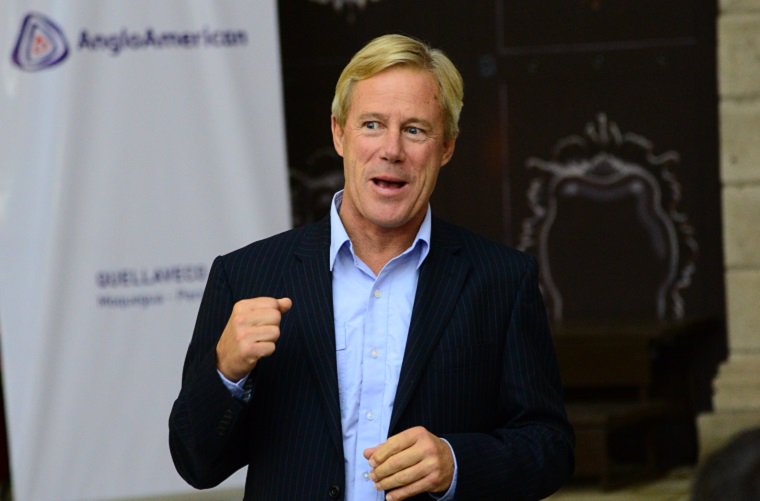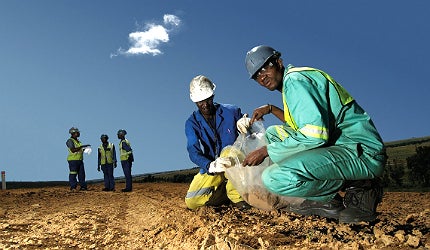Decarbonization has fueled copper investment globally, world’s largest player – BHP sprinted competitively on mining field but its ambition to swoop its biggest rival to emerge as a copper ‘kingpin’ crashed
World’s largest mining company slashed a $39 billion deal against its rival excavator which every mining enthusiast thought was decline of an era and beginning of a formidable industrial monopoly. BHP, an Australian excavating company is the largest in the world. History has it, the industry skyrocketed since its foundation in 1885. The secret-ingredient in its success was its relentless inclination to diversification.
But the stream of its pursuits had not reached the end pole, the maestro-miniac pounded a deal to clip off its rival – Anglo American’s wings luring it to accept a takeover proposal. The unsolicited, non-binding and highly conditional proposal failed to strike a chord with the board members of Anglo American who rejected the proposal after an unanimous vote.
“The Board has considered the proposal with its advisers and concluded that the Proposal significantly undervalues Anglo American and its future prospects.”
Anglo American Chairman – Stuart Chambers justified the board’s decision which was taken after extensive analysis of the company’s overall structure. 30% of the company’s total productional value comes from copper whose resourcefulness is awaiting future explosion. There was more value to be created for shareholders in the coming months and years ahead, which the proposal failed to create.

Is AAL’s Mining copper the reason for BHP’s proposal?
Copper – a metal adding value to electronic devices, electric vehicles, renewable energy projects, that every mining company tags as a future asset is the underneath layer of BHP’s acquisition proposal. Anglo American’s vast copper reserves in Chile and Peru have extended its significance in the highly competitive market. Acquiring these assets would make BHP the world’s largest producer of copper.
Profitability which would have unlocked for BHP’s business had the proposal made it to the finish line could have transformed its future prospects drastically. But the shareholders of Anglo American did not feel satisfied with the value that BHP had attached to its highly-profitable, future-ready, coppercentric business endeavor.
Anglo American stocks soared after BHP announced its interest in acquiring the company. Anglo American were up 20% – Anglo American Platinum’s shares rose more than 2% while Kumba Iron Ore moved 0.9% lower – reflecting public and industrial enthusiasm guarding the deal. Elliot Advisors, a U.K based company had updated 2.5% stakes in Anglo American, worth roughly $1.1 billion.
The rejection can be revoked only if BHP could come up with a better offer. It has until May 22 to amend necessary provisions of the proposal, inflate per share price to a value which the shareholders could assume ‘satisfactory’ to crack a deal which can make BHP invincible in copper mining industry – a metal whose advantages are seeded in the future.

Anglo American mining behind South Africa’s economic tranquility
Anglo American since the dawn of its operations have been South Africa’s economic lifeblood. The South African government holds 7% stake in the company which is the fifth largest coal and diamond producer and tenth largest gold producer in the world. South Africa – a country situated in African province is fighting internal ordeal galvanized by immigration and extreme income inequalities. Significance that Anglo American holds in transpiring economic upliftment in the nation is paramount.
“Anglo American’s business here was once the jewel in the crown of South Africa’s economy. Under this deal the country could loose its share of economic profitability drove singlehandedly by the company’s mining ventures.” BHP and South Africa share history of mutual reluctance, where both entities defy from indulging in business together. BHP plans to exclude shares in Anglo’s platinum and iron subsidiaries, two important contributors in the southern African nation.
Anglo American’s ties with South Africa goes back to a period of “dark history”. The abundance of cheap black-labor in Africa backed the institutionalization of the the company which its forefathers had envisioned. Today it uses it intense corporate power to pursue African government to rollback electricity in half of Africa’s blacked out homes, revitalize its unproductive education system and numerous other public services.
Anglo American has invested a total of $6 billion in South Africa over the course of five years. The transformation which Africa is witnessed with its contributions has helped repair its economic infractions. The deal which Anglo American rejected busted a balloon of jubilation in the South African nation.












